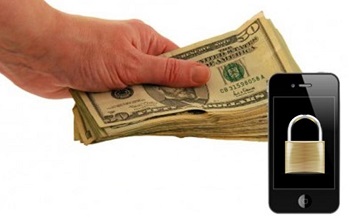A recent report has shown that most of the leading Android and iOS applications have been hacked.
The third annual “State of Mobile App Security” report has now been released, and what it has revealed was that mobile security in both Android and iOS based applications is not high enough to be able to keep hackers from getting in.
How many have been hacked? 87 percent of the top 100 paid Apple iOS apps and 97 percent of the top paid Android apps!
Beyond the rise in mobile security breaches in apps that are occurring among the Popular Free apps that are most frequently downloaded, the report from this year also showed that there was evidence of hacking that was quite commonplace in the applications in the following categories: financial services, retail and merchants, healthcare and medical. Overall, these were primarily driven by hacks in mobile apps for Android devices.
This shows that there remains a serious concern with regards to mobile security in top apps of all types and forms.
 The report is produced by Arxan and it has provided an update over the indicators that have been published in previous years with regards to the prevalence of mobile security issues in the form of hacked apps over the two largest smartphone platforms, Android and iOS. Considering the rapid growth of the global mobile app usage, the insight provided in this report could be quite important.
The report is produced by Arxan and it has provided an update over the indicators that have been published in previous years with regards to the prevalence of mobile security issues in the form of hacked apps over the two largest smartphone platforms, Android and iOS. Considering the rapid growth of the global mobile app usage, the insight provided in this report could be quite important.
This report also projected that there will be an increase in the download rate of free mobile apps of 99 percent, to the point that they will reach 253 billion downloads in 207. In the paid app download category, it is expected that there will be a 33 percent increase by 2017, when it will reach 15 billion downloads.
The mobile security risk associated with hacking in apps is remaining stead with Android apps, as the figures showed that 97 percent of the top paid apps have been hacked. That said, the risk of hacking in the top paid iOS apps is considerably higher now than it had been last year, as it is now at 87 percent, compared to last year’s 56 percent.
Company has raised $5.9 million during recent round of funding
SimplyTapp, a provider of Host Card Emulation solutions for cloud-based mobile payments, has announced that it has raised $5.9 million during its Series B funding round. The company notes that several new investors have contributed to its future and existing investors, such as Blue Sky Capital, have continued to show their support. Thus far, SimplyApp has raised some $7.6 million in funding that will be used to further develop its cloud-based security solution for NFC-powered mobile payments.
Security continues to be a problem for the mobile sector
Security has become a major issue in the mobile commerce field. Mobile devices are beginning to traffic a large amount of financial information coming from consumers and some platforms may not be able to keep this information safe and secure. NFC technology has become a popular mobile commerce tool, allowing for the transmission of digital information over short distances. This technology is also a target for malicious groups that want to exploit this digital information. The demand for better security solutions in the mobile commerce field has been on the rise for some time and companies like SimplyTapp are looking to accommodate this need.
Cloud-based solution may help make mobile payments more secure
 SimplyTapp’s cloud-based solution may help provide consumers and businesses participating in mobile commerce with some peace of mind. The system is designed to authorize transactions and confirm consumer information through a cloud network. This provides an extra layer of security when financial information is being accessed. SimplyTapp has opened up its platform to developers in order to enable them to design new applications and services that are more capable of keeping consumer information safe.
SimplyTapp’s cloud-based solution may help provide consumers and businesses participating in mobile commerce with some peace of mind. The system is designed to authorize transactions and confirm consumer information through a cloud network. This provides an extra layer of security when financial information is being accessed. SimplyTapp has opened up its platform to developers in order to enable them to design new applications and services that are more capable of keeping consumer information safe.
Security concerns do little to stop consumers from participating in mobile commerce
Security has become one of the most significant challenges facing mobile commerce currently. Cyber attacks in this sector are becoming more common, and the lack of effective security solutions is one of the reasons behind this problem. Despite security concerns, consumers have shown that they are quite enthusiastic about mobile payments, wanting to use their smartphones and tablets more often when purchasing products.
 The report is produced by Arxan and it has provided an update over the indicators that have been published in previous years with regards to the prevalence of mobile security issues in the form of hacked apps over the two largest smartphone platforms, Android and iOS. Considering the rapid growth of the global mobile app usage, the insight provided in this report could be quite important.
The report is produced by Arxan and it has provided an update over the indicators that have been published in previous years with regards to the prevalence of mobile security issues in the form of hacked apps over the two largest smartphone platforms, Android and iOS. Considering the rapid growth of the global mobile app usage, the insight provided in this report could be quite important.
 SimplyTapp’s cloud-based solution may help provide consumers and businesses participating in
SimplyTapp’s cloud-based solution may help provide consumers and businesses participating in 